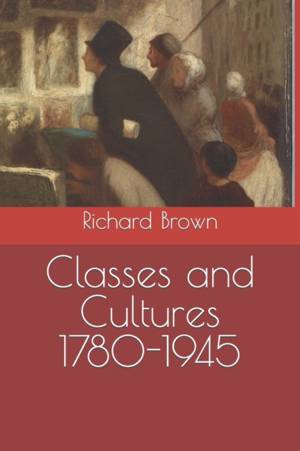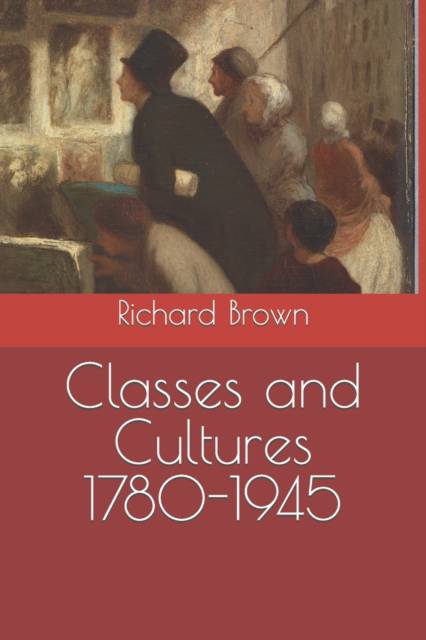
Door een staking bij bpost kan je online bestelling op dit moment iets langer onderweg zijn dan voorzien. Dringend iets nodig? Onze winkels ontvangen jou met open armen!
- Afhalen na 1 uur in een winkel met voorraad
- Gratis thuislevering in België vanaf € 30
- Ruim aanbod met 7 miljoen producten
Door een staking bij bpost kan je online bestelling op dit moment iets langer onderweg zijn dan voorzien. Dringend iets nodig? Onze winkels ontvangen jou met open armen!
- Afhalen na 1 uur in een winkel met voorraad
- Gratis thuislevering in België vanaf € 30
- Ruim aanbod met 7 miljoen producten
Zoeken
€ 15,45
+ 30 punten
Omschrijving
British Society 1780-1945 consists of five books that seek to explain the major social developments that occurred during the late-eighteenth, and nineteenth centuries and, unlike the first edition of this series, extends into the first half of the twentieth century. British Society 1780-1945 consists of five volumes:
Volume 1: Economy, Population and Transport
Volume 2: Classes and Cultures
Volume 3: Work, Health and Poverty
Volume 4: Education and Crime
Volume 5: Religion and Government
The second volume examines the nature of social classes and cultures from the late-eighteenth century to the mid-twentieth century. The book first looks at the ways in which contemporaries and historians have viewed classes and how a 'class' society developed as the result of economic change. The remaining three chapters follow the conventional three class definition and consider the working-classes, middle-classes and upper-classes. Particular regard is placed on the changing role of working-class and middle-class women and how their economic, social and cultural roles changed when faced with massive economic dislocation and male-dominated outlooks
Volume 1: Economy, Population and Transport
Volume 2: Classes and Cultures
Volume 3: Work, Health and Poverty
Volume 4: Education and Crime
Volume 5: Religion and Government
The second volume examines the nature of social classes and cultures from the late-eighteenth century to the mid-twentieth century. The book first looks at the ways in which contemporaries and historians have viewed classes and how a 'class' society developed as the result of economic change. The remaining three chapters follow the conventional three class definition and consider the working-classes, middle-classes and upper-classes. Particular regard is placed on the changing role of working-class and middle-class women and how their economic, social and cultural roles changed when faced with massive economic dislocation and male-dominated outlooks
Specificaties
Betrokkenen
- Auteur(s):
- Uitgeverij:
Inhoud
- Aantal bladzijden:
- 304
- Taal:
- Engels
- Reeks:
Eigenschappen
- Productcode (EAN):
- 9798412430898
- Verschijningsdatum:
- 4/02/2022
- Uitvoering:
- Paperback
- Formaat:
- Trade paperback (VS)
- Afmetingen:
- 152 mm x 229 mm
- Gewicht:
- 408 g

Alleen bij Standaard Boekhandel
+ 30 punten op je klantenkaart van Standaard Boekhandel
Beoordelingen
We publiceren alleen reviews die voldoen aan de voorwaarden voor reviews. Bekijk onze voorwaarden voor reviews.











